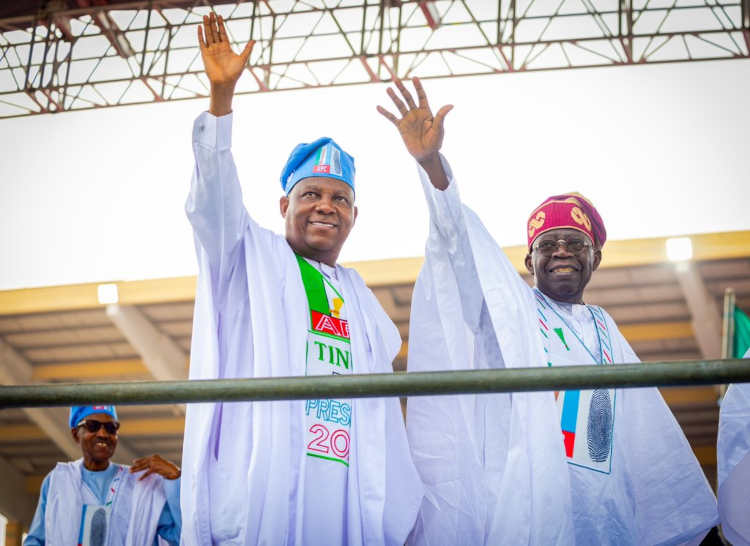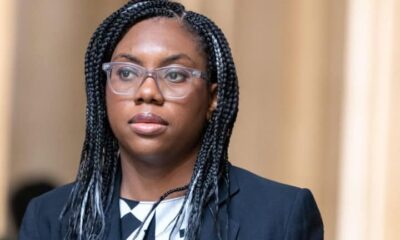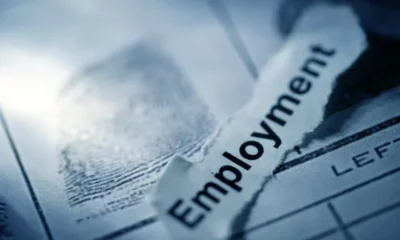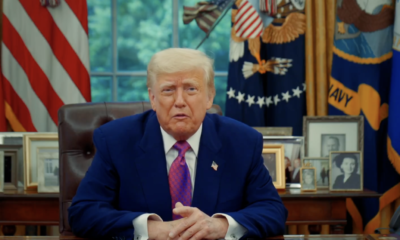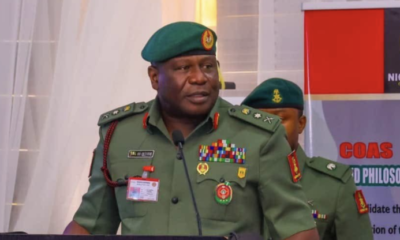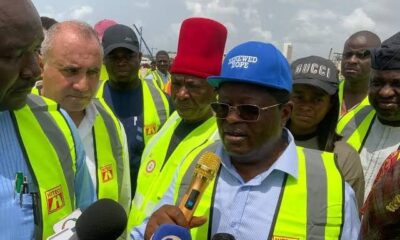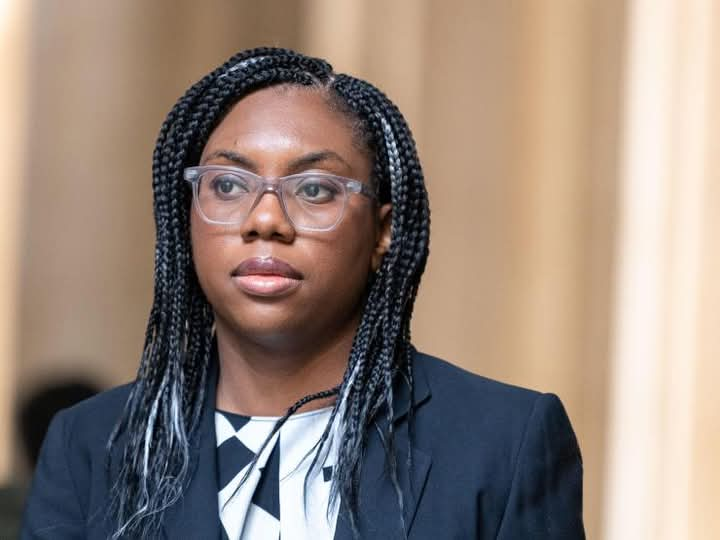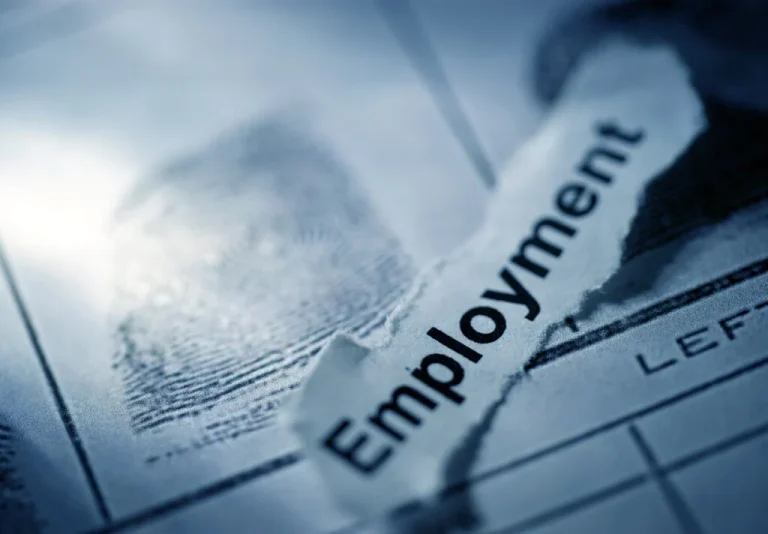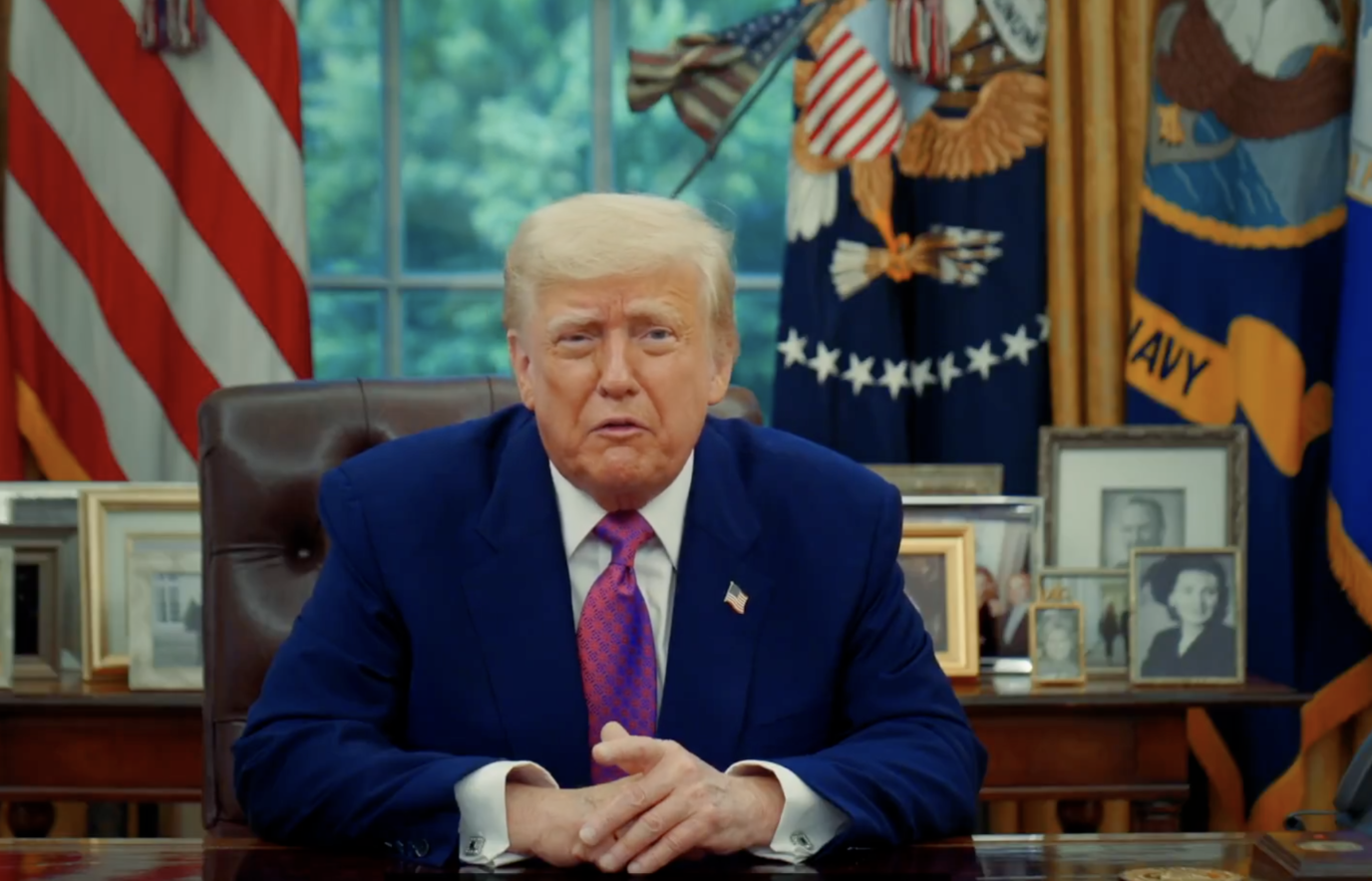Despite the 2027 election being two years away, an alleged plot to drop Vice President Kashim Shettima as President Bola Tinubu’s running mate in the poll has divided the All Progressives Congress.
A meeting held by the APC North-East stakeholders in Gombe State on Sunday ended in a fracas as supporters of the Vice President attacked the party’s Zonal Vice Chairman, Mustapha Salihu.
An angry member was seen in a viral video hitting Salihu with a chair as he ran to escape the wrath of the party faithful. Another delegate also threw a black plastic bucket at him.
The gathering, which was held at the International Conference Centre, Gombe, was initially convened to reaffirm support for President Tinubu’s second-term bid.
However, the meeting descended into violence when some key party leaders failed to recognize Shettima as part of the proposed 2027 joint ticket.
Tensions rose after the APC National Vice Chairman (North-East), Salihu, concluded his address without mentioning Shettima as Tinubu’s running mate.
Salihu said, “We have no business not supporting this party with all the juicy appointments and responsibilities given to us by this government. I would want all members of the zonal executive committee to stand-up so that we will do the proper endorsement, because it is the zonal executive committee that holds the ticket. We want to reaffirm and also adopt the endorsement earlier done by the national working committee, that Asiwaju Bola Ahmed Tinubu is endorsed to be a sole candidate for the 2027 election.”
His failure to mention the Vice President triggered chants of “Shettima! Shettima!! Shettima!!!” as an angry supporter confronted Salihu on stage.
Eyewitnesses reported that chairs were hurled across the hall as the confrontation turned violent, disrupting the event and prompting security officers to intervene.
Attempts by Deputy National Chairman (North), Alhaji Bukar Dalori, to calm the delegates were unsuccessful.
“It’s an insult to the entire region that our own son, the Vice President, was not even mentioned. This is a calculated attempt to sideline Shettima, and we will resist it with everything we have,” a Borno delegate said.
Before the chaos, the governors of the three APC-controlled states in the North-East — Mai Mala Buni (Yobe), Babagana Zulum (Borno), and host Governor Muhammadu Yahaya (Gombe) — had all endorsed the Tinubu-Shettima ticket for the 2027 poll in separate speeches.
Governor Yahaya stated, “The North-East is fully behind the President and the Vice President. Their leadership has brought renewed hope to this region.”
Despite efforts by party leaders to ease the tension, the situation escalated when APC National Chairman, Abdullahi Ganduje, also avoided directly confirming Shettima as Tinubu’s running mate in his closing remarks.
Ganduje said, “We need unity more than ever. This region delivered over 1.2 million votes in 2023. In 2027, we expect three times that. But we must remain focused and disciplined as a party.” He added, “This zone has produced the number two of this country, we are proud of this zone, we are proud of the North and we are proud of Nigeria as a nation. I have to tell you, we have a progressive President, the leader of our party Asiwaju Bola Ahmed Tinubu and we are proud of his deputy, his Vice President, it is one ticket according to the Constitution of the Federal Republic of Nigeria.”
His comments did little to calm the crowd, many of whom began chanting, “No Shettima, no APC in the North-East.”
Some even warned they could shift support to former Vice President Atiku Abubakar of the opposition Peoples Democratic Party if the party proceeded with plans to remove Shettima from the ticket.
“If Shettima is dropped, I will personally lead my people to vote for Atiku,” a party chieftain from Adamawa State (told The Punch). “We won’t be taken for granted.”
The meeting ended abruptly as several dignitaries, including current and former governors, ministers, senators, and House of Representatives members left the venue amid the commotion.
Outside, police used teargas to disperse the angry crowd that had gathered as tensions increased.
According to The Punch, eyewitness James Abass said that the incident could reveal deeper divisions within the APC ahead of the 2027 general elections, particularly in the North-East, where Shettima holds significant grassroots support.
“This is more than just a misunderstanding. It’s a sign of serious internal divisions within the ruling party that could trigger mass defections or the rise of a counter-movement if not urgently addressed,” Abass said.
A reliable source provided (The Punch with) a summary of the zonal meeting.
“The Governor of Gombe was not in support of the joint ticket but could not summon the courage to openly oppose it as the host. But Hon. Usman Kumo, Chief Whip of the House and member representing Kumo Federal Constituency, from Gombe State endorsed the ticket on behalf of the North-East House of Reps Caucus. Senator M.T. Monguno (Chief Whip of the Senate, representing Borno North) endorsed the joint ticket on behalf of the Senate from the North-East while Hon. Ali Bukar Dalori, Deputy National Chairman (North) spoke on behalf of the other National Working Committee members from the North East. It is pertinent to mention that it was only Comrade Mustapha Salihu that spoke against the ticket while the four members of the NWC from the North-East had all supported the joint ticket. Those NWC members, who supported the joint ticket are Dalori; Mohammad Kumo (Deputy Financial Secretary, Gombe State); Zainab Ibrahim (Deputy Women Leader, Taraba State); and Abubakar Maikafi (National Auditor, Bauchi State).”
The National Vice Chairman (South-East), Dr Ijeoma Arodiogbu, had earlier dismissed increasing speculation that Tinubu may sideline the Vice President, calling it a distraction.
“I’m hearing that for the first time. There’s a solid working relationship between President Tinubu and Vice President Shettima. Shettima is a key asset—intelligent, focused, and deeply involved in this administration. These rumours are likely just political noise meant to create division,” Arodiogbu said last week.
He noted that such rumours often surface ahead of elections but emphasized that the President and his deputy remained united and fully endorsed by the party.
Also, the Special Adviser to the President on Policy Communication, Daniel Bwala, responded briefly when contacted, saying, “I am not aware, Sir.”
The speculation about the President dropping Shettima for 2027 emerged shortly after 22 APC governors, National Assembly leadership and party leaders endorsed Tinubu as the sole presidential candidate for the next election.
The endorsement was first proposed by the Chairman of the Progressive Governors’ Forum and Imo State Governor, Hope Uzodimma, and seconded by Kaduna State Governor, Uba Sani, during the APC National Summit held at the State House Banquet Hall, Abuja.
Shortly after, the President of the Senate, Godswill Akpabio and the Speaker of the House of Representatives, Tajudeen Abbas, on behalf of the National Assembly, also endorsed the President for re-election, citing his performance.
The National Chairman of the APC, Ganduje, on behalf of the National Working Committee, confirmed the decision that Tinubu is the sole candidate of the party for the 2027 presidential election.
While the endorsement was welcomed in some circles, it also drew criticism from opposition parties and within the APC.
Commenting on the Gombe incident, Presidency and party officials denied claims of a potential shakeup in the APC ticket.
The APC’s National Vice Chairman (South-East), Dr. Arodiogbu, said there was no truth in the rumour that the President intended to drop Shettima in 2027.
He stated, “That report is not a true picture of what is happening because we’ve had a discussion on that. I’m even here with the National Chairman as we speak. I have also called the National Vice Chairman North East, Comrade Mustafa, who is my very good friend and asked him that I heard that you have decided not to support the Vice President. He said ‘no, that is not the case.’ The case is that he made a speech endorsing the President and the outing was for endorsement of the President. There was no such provision in his speech. It should be known that the President and the Vice President are running on a joint ticket. So I don’t think that is the case. But in politics, as you know, people are pre-emptive of what does not exist, especially when it affects their interest. But what we know till this moment is that the President has not given any sign, even by words or by action, that he is not comfortable in continuing with the Vice President.”
However, unconfirmed party sources said there were discussions by influential figures to consider a more prominent northern APC chieftain as Tinubu’s running mate in 2027.
Delegates from Borno State who attended the stakeholders meeting expressed disappointment over Salihu’s omission of Shettima’s name during his address.
Speaking with our correspondent in Maiduguri, a delegate and the Director-General of the Borno State Great Green Wall, Usman Aliyu, suggested there was a hidden agenda and said party members would not tolerate such a plot.
“What happened was during Mustapha’s speech, he only endorsed President Bola Ahmed Tinubu without endorsing Senator Kashim Shetima. This is a slap on our faces. A lot of people couldn’t resist that because he has not been faithful and fair to us, and we don’t know why he didn’t endorse Vice President Kashim Shettima.”
Reflecting the sentiments of other delegates, he added, “Honestly, we are disappointed because we expect to have one voice.”
He mentioned that a communiqué would be released where party members would affirm Tinubu and Shettima’s joint candidacy.
“So far, you have also seen it on television; Borno governor, our state APC chairman, and other stakeholders in the region have unanimously endorsed the Tinubu/Shettima Ticket.”
He also criticized Governor Inuwa of Gombe, who is the Chairman of the APC North-East Governors Forum, for not openly endorsing the Tinubu-Shettima ticket.
“The host governor, Inuwa Yahaya, didn’t openly endorse Kashim Shettima and Tinubu. There is also a problem from that side because we expected him, in his speech, to endorse them, but he didn’t. He only talked about the good administration of President Bola Tinubu and the Renewed Hope Agenda. So, you see, there is a kind of hidden agenda,” he said.
He dismissed the claim that APC National Chairman Ganduje did not endorse the Tinubu-Shettima ticket, saying he had consistently made his stance clear.
“Ganduje has always said that Tinubu and Kashim Shettima are one ticket. He didn’t come out clearly today, though, but what he is saying is that you can’t separate the ticket.”
Meanwhile, the APC Sokoto State chairman, Isa Acida, declined to comment on the chapter’s stance on the issue.
However, a senior official, speaking on condition of anonymity, said the party had yet to decide but would align with the national headquarters on the 2027 candidacy issue.
“We haven’t taken any position on the development but let me assure you that we will work together with the national headquarters of our party as regards the choice of candidates for the 2027 general election,” he stated.
Credit: The Punch

 BIG STORY4 days ago
BIG STORY4 days ago
 BIG STORY2 days ago
BIG STORY2 days ago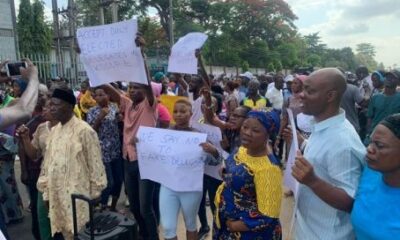
 BIG STORY4 days ago
BIG STORY4 days ago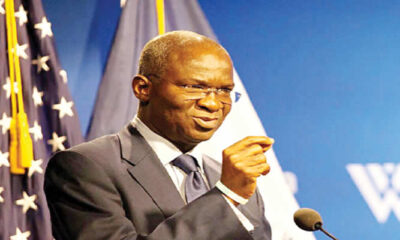
 BIG STORY3 days ago
BIG STORY3 days ago
 BIG STORY4 days ago
BIG STORY4 days ago
 BIG STORY4 days ago
BIG STORY4 days ago
 BIG STORY5 days ago
BIG STORY5 days ago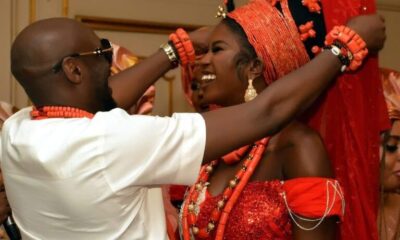
 BIG STORY1 day ago
BIG STORY1 day ago




